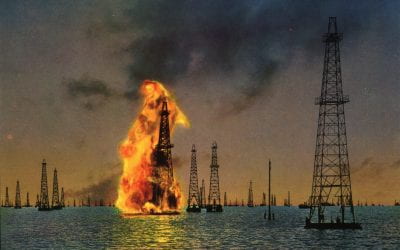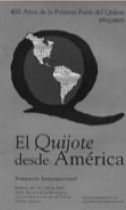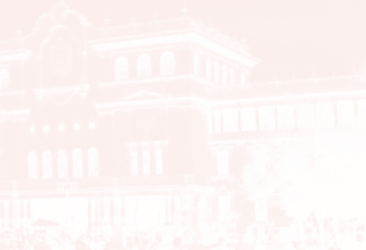The Academic and the Censor
The Case of the Missing Letter in Foreign Affairs
I am writing from New York. It is one of those frigid days in which the air is cold, but the sun is shining and the city bursts with energy and the joy of living. But this provides no escape from the dark affairs of our political past. The dark shadows of human rights abuses are almost more relevant here and now than in Chile itself. These shadows are now not just our own: they have become global, universal. Practically every day something is published in the U.S. press about the Riggs bank accounts in which General Augusto Pinochet hoarded millions of dollars or Operation Condor, a state-sponsored terror network set up by the Pinochet government to do away with opponents. But the “Chilean” history that makes the greatest impression on me is one that the editor of a famous New York journal tells me over lunch.
This story begins towards the end of 2003, when a distinguished expert in Latin American affairs, Professor Kenneth Maxwell, published a review of Peter Kornbluh’s The Pinochet File in the journal Foreign Affairs. Maxwell, discussing the book based on files recently declassified by the U.S. government, insinuates that the United States was complicit in the Chilean coup and in certain later violent actions. His review provoked Henry Kissinger’s fury. William Rogers, Kissinger’s lifelong collaborator, sent Foreign Affairs a fulminating reply, but Maxwell refuted it with brutal efficiency.
Here, the situation gets nasty. Pressured by its bosses, the Council on Foreign Relations, the journal reaches an unusual agreement with Rogers. Rogers would respond to Maxwell’s rebuttal, but Maxwell would not have the right of reply to him: Rogers would have the last word. James Hoge, the journal’s editor, was breaking a sacred principle observed by that publication that writers always have the right of reply. Hoge was reacting to the heaviest type of pressure from two businessmen, who had already donated more than $34 million dollars to the Council on Foreign Relations. A lot of money to insist on editorial independence.
What was Maxwell’s worst offense? He described a confusing series of telegrams that few would have learned about, had it not been for the exaggerated repressive haste on the part of Kissinger and his operators. Maxwell recounts that on August 23, 1976, Washington sent a telegram to its ambassadors in the Southern Cone, asking them to warn each country that an assassination campaign of enemies within and beyond its borders “would create a moral and political problem” and would now be looked upon askance by the United States. Frowned upon going forth? Was this a new development? How was such a campaign viewed before the telegrams were sent?
These questions pose the first enigma. In the case of Chile, U.S. Ambassador David Popper held on to the telegram, because he felt that its contents would be offensive to the Chilean government. In any case, on September 20, Washington sent a second telegram, asking its embassies to overlook the first one. What had happened in the meantime? After 27 days, did Washington decide that political assassinations were legitimate? What makes the situation even worse is that, as Maxwell points out, “by cruel coincidence,” the day after the second telegram was sent, Orlando Letelier, a Chilean diplomat under the Allende government, was killed in Washington DC, along with his American assistant Ronnie Moffit. Coincidences of any kind, whether cruel or happy ones, do not necessary imply cause and effect. But the nervous sensibility of Kissinger and Rogers appeared to perceive an implicit accusation.
The story has a happy ending for Maxwell. His academic colleagues supported him without reservations. He resigned from the Council and was named Senior Fellow at Harvard’s David Rockefeller Center for Latin American Studies. He almost immediately wrote a fascinating document about the episode, which has been published as part of the Center’s Working Papers on Latin America series . The paper is entitled, “The Case of the Missing Letter in Foreign Affairs: Kissinger, Pinochet and Operation Condor.” To read it is like reading a mystery novel.
It can hardly be believed that a journal with the prestige of Foreign Affairs would sacrifice its reputation this way. Fortunately, this is a case in which, thanks to the determination of North American academics, the censors lost out and Maxwell had the last word.
La Última Palabra
Felizmente, éste es un caso en que, gracias al tesón de los académicos norteamericanos, se perjudicaron los censores.
Por David Gallagher
Escribo desde Nueva York. Es uno de esos días en que el aire frío pero asoleado da energía y alegría de vivir. Pero no da descanso de los asuntos oscuros de nuestro pasado. Están casi más vigentes acá que en Chile. Es que ya no son nuestros: son globales, universales. Casi todos los días en los diarios norteamericanos sale algo sobre las cuentas del Riggs, o el Plan Cóndor. Pero la historia “chilena” que más me impresiona, es una que me cuenta al almuerzo el director de una gran revista de la ciudad.
La historia comienza a fines de 2003, cuando un distinguido experto en América Latina, el profesor Kenneth Maxwell, publica en la revista “Foreign Affairs” una reseña del libro de Peter Kornbluh, sobre los llamados “archivos Pinochet”, recién desclasificados por el gobierno norteamericano. La reseña de Maxwell, que insinúa que hubo complicidad de Estados Unidos con el golpe en Chile y algunos hechos violentos posteriores, despierta el furor de Henry Kissinger. William Rogers, su colaborador de toda una vida, envía a “Foreign Affairs” una fulminante respuesta, pero Maxwell la refuta con brutal eficiencia.
Aquí las cosas se ponen turbias. Presionado por sus dueños, el Council on Foreign Relations, la revista llega con Rogers a un inusual acuerdo. Rogers contestará la respuesta de Maxwell, pero Maxwell no tendrá derecho a responderle a él: Rogers tendrá la última palabra. James Hoge, director de la revista, vulnera un principio sagrado: que un colaborador siempre tenga derecho a respuesta. Es que ha habido presión de pesos pesadísimos: dos empresarios, que ya han donado más de 34 millones de dólares al Council on Foreign Relations. Mucho dinero para insistir en la independencia editorial.
¿Cuál fue la peor ofensa de Maxwell? Describir una confusa secuencia de telegramas, que, sin tanto afán represivo de parte de Kissinger y sus operadores, pocos conocerían. El 23 de agosto de 1976, Washington manda un telegrama a sus embajadores del Cono Sur, pidiéndoles advertir a cada país que una campaña de asesinatos de enemigos dentro y fuera de sus fronteras “crearía un problema moral y político”, y sería mal visto por Estados Unidos. ¿Mal visto de allí en adelante? ¿Cómo era visto hasta entonces? Ése es el primer enigma. En el caso de Chile, el telegrama es retenido por el embajador David Popper, porque estima que sería ofensivo para el gobierno chileno. En todo caso, el 20 de septiembre Washington manda un segundo telegrama, pidiendo que las embajadas dejen sin efecto el primero. ¿Qué pasó? Después de 27 días, ¿Washington decidió que sí era legítimo asesinar? Hay una agravante: Maxwell destaca que, “por cruel coincidencia”, el día mismo de ese segundo telegrama es asesinado Orlando Letelier. Las coincidencias, sean felices o crueles, no suelen implicar una relación de causa y efecto. Pero la nerviosa sensibilidad de Kissinger y Rogers parece intuir una acusación.
El cuento tiene un final feliz para Maxwell. Sus colegas académicos lo apoyan sin reservas. Renuncia al Council, y es nombrado profesor en Harvard, en el David Rockefeller Center. Enseguida escribe un fascinante documento sobre el episodio, que ahora está en el sitio web del Center. Se llama “El caso de la carta perdida”, y leerlo es como leer una novela de suspenso.
Es increíble que, debido a presiones, una revista como “Foreign Affairs” sacrifique tanto su prestigio. Felizmente, éste es un caso en que, gracias al tesón de los académicos norteamericanos, se perjudicaron los censores. Maxwell se quedó, de lejos, con la última palabra.
Spring/Summer 2005, Volume IV, Number 2
David Gallagher, a former Oxford University Lecturer in Latin American Studies and Fellow of St. Antony´s College, Oxford, is a Founding Partner of ASSET-Chile, an independent investment banking business. He is a director of Centro de Estudios Públicos (CEP), and Chairman of the Peggy Guggenheim Foundation. Gallagher writes a column in El Mercurio, Chile’s leading newspaper and is the author of Modern Latin American Literature (Oxford, 1974), Improvisaciones(Santiago, 1990) and Otras Improvisaciones (Santiago 2004). This article was translated from the Spanish originally published in El Mercurio, Santiago de Chile.
David Gallagher, ex profesor de Estudios Latinoamericanos de la Universidad de Oxford y miembro de St. Antony’s College, Oxford, es socio fundador de ASSET-Chile, una empresa de banca de inversión independiente. Es director del Centro de Estudios Públicos (CEP) y presidente de la Fundación Peggy Guggenheim. Gallagher escribe una columna en El Mercurio, el principal periódico de Chile y es autor de Modern Latin American Literature (Oxford, 1974), Improvisaciones (Santiago, 1990) y Otras Improvisaciones (Santiago 2004). Este artículo fue traducido del español publicado originalmente en El Mercurio, Santiago de Chile.
Related Articles
Introduction: Bush Administration Policy
So it is the policy of the United States to seek and support the growth of democratic movements and institutions in every nation and culture, with the ultimate goal of ending tyranny…
International Symposium in Puebla
It is likely that Don Quijote first reached the Western hemisphere—in what was, at the time, lightning speed—as a stowaway. On September 28, 1605, Franciscan commissioners of the…
Adiós 61 Kirkland
For the past eight years, the David Rockefeller Center for Latin American Studies has made its home at 61 Kirkland Street. Countless film screenings, celebrations and roundtable discussions…




